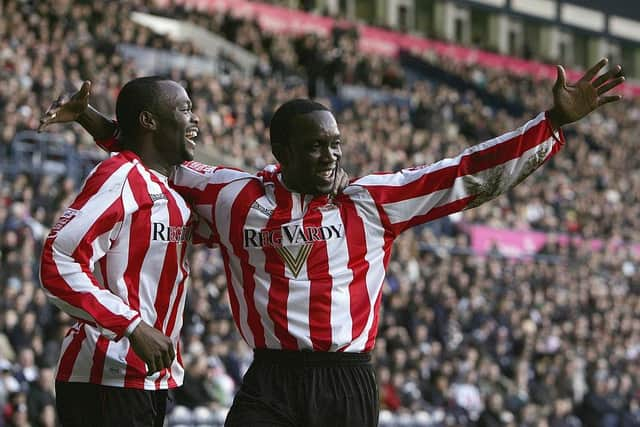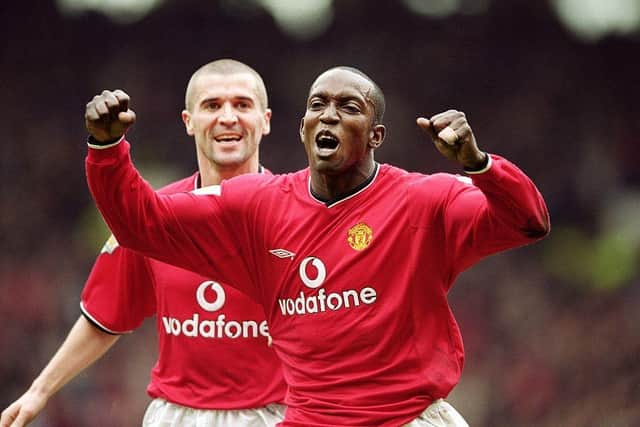Former Black Cats boss hails Dwight Yorke impact after switching Sydney for Sunderland
and live on Freeview channel 276
Yorke left Manchester United in 2002 and after subdued stints at Blackburn Rovers and Birmingham City, it looked like his career in England was over.
A move to Sydney FC followed in 2005, but Yorke lasted just one season there before being tempted back to England by Roy Keane.
Advertisement
Hide AdAdvertisement
Hide AdKeane, fresh from taking over a struggling Sunderland as manager, needed reinforcements to his squad - and Yorke was someone the Republic of Ireland international knew well having spent four years at Old Trafford together.


Speaking on the Mackem Miracle documentary, Keane revealed that even though the striker had garnered a reputation as a ‘party animal’, he believed he was up for the ‘challenge’ of playing for Sunderland, even if that meant swapping a Sydney penthouse for the north east of England:
“After taking the first one or two training sessions, I kind of knew quickly that the team needed help, they needed more quality players and a stronger squad.” Keane said.
“Particularly as we know the challenges of the Championship, I identified five or six players: Yorkie, Liam Miller, Graham Kavanagh, Ross Wallace, Stan Varga and David Connolly.
Advertisement
Hide AdAdvertisement
Hide Ad“Towards the end of his career, Yorkie had a reputation as a bit of a party animal but I knew he loved the game of football and was passionate about the game.


“Okay he had other distractions and he liked a night out and all that carry on, but he was over in Sydney and he was their franchise player and I remember ringing him from the training ground.
“I’m not sure of the time difference but I rang him and it was pretty bleak [weather]. I remember looking out the window at the training ground and on a good day at Sunderland it’s pretty bleak, I think the average wind is about 80-miles-per-hour.
“So I rang him and said ‘Yorkie do you fancy coming to Sunderland?’. He says ‘are you serious?’ and I’m like ‘yeah’.
Advertisement
Hide AdAdvertisement
Hide Ad“You know he had a penthouse at Sydney harbour but I was like ‘that’ll always be there, you can always go back to that, but we have a big challenge here’.
“Like I said, I knew deep down he loved the game and fancied a challenge. I knew he would lighten the mood, the players loved him, the staff loved him.
“He would come in on a morning and always looked happy, I knew he would be a big help and the players loved him.”
From taking charge with the side rooted to the bottom of the table, Keane oversaw a remarkable turnaround in fortunes that culminated with his side lifting the Championship trophy.
Advertisement
Hide AdAdvertisement
Hide AdIt was a wonderful achievement by the Black Cats, made even more impressive by the fact this was Keane’s first job in management having retired from the game less than three months previous.
However, Keane was eager to place credit for their transformation onto his players:
“I think I knew all the players that came in. I had experience working with them before as players at club level or international level. They came in and made my job a lot easier I can tell you.”